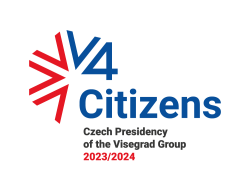
| Thu | Fri | Sat | Sun | Mon |
|---|---|---|---|---|
| 23 | 26 | 30 | 26 | 22 |
| Thu | Fri | Sat | Sun | Mon |
|---|---|---|---|---|
| 27 | 28 | 34 | 28 | 27 |
| Thu | Fri | Sat | Sun | Mon |
|---|---|---|---|---|
| 27 | 29 | 33 | 34 | 28 |
| Thu | Fri | Sat | Sun | Mon |
|---|---|---|---|---|
| 28 | 30 | 33 | 36 | 30 |
Joint Statement on the Eastern Partnership of the Foreign Ministers of the Visegrad Group
The Ministers of Foreign Affairs of the Visegrad Group (V4) and the Eastern Partnership countries met on April 12, 2017 in Warsaw under the Polish Presidency of the Visegrad Group. This event was also attended by the Commissioner for European Neighborhood Policy and Enlargement Negotiations as well as by representatives of Bulgaria, Croatia, Estonia, Malta, Romania, Slovenia, Sweden, United Kingdom and the European External Action Service.
Ahead of the Brussels Summit and beyond
The V4 Ministers reaffirmed their strong support to the Eastern Partnership as a strategic dimension of the European Neighborhood Policy and a key and active factor of stability and economic progress in Eastern Europe. They call EU institutions for appropriate steps to keep Eastern Partnership high on the EU’s agenda according to the EU Global Strategy and ENP Review.
The Ministers emphasized the Eastern Partnership should have a clear political narrative, a new strategic vision and an architecture guaranteeing ownership of European institutions, Member States and partner countries. They expressed their readiness to fulfill the commitments from the Vilnius (differentiated approach) and Riga Declarations (four priority areas of cooperation) before the upcoming 2017 Eastern Partnership Summit in Brussels. They agreed that the Brussels Declaration should reflect different aspirations of partner countries and offer an European perspective for the interested partners, as well as set out an ambitious agenda for the Eastern Partnership in the longer perspective. In this context Ministers welcomed the recent efforts of the European Commission and the European External Action Service to set deliverables and goals for Eastern Partnership in the perspective of 2020.
The Ministers renewed focus of the Eastern Partnership on regional cooperation, inclusivity, differentiation and its multilateral dimension. They recalled the need to react strategically to the consequences of the present challenging geopolitical situation and the migration crisis for the Eastern Partnership countries and the European Union. In this context they underlined the need to follow with the reforms in partner countries, strengthen their internal stability, resilience and civilian security of partners. In this context they emphasized the importance of cooperation on strategic communication. They also underlined that all these activities should bring tangible benefits for citizens of both the EU and the partner countries.
The Ministers reconfirmed that the implementation of Association Agreement/Deep and Comprehensive Free Trade Area is the key task for Georgia, Moldova and Ukraine within their relations with the European Union and offered their support to the reform efforts. They welcomed the initialed new framework agreements with Armenia and called for further progress in the ongoing process of negotiations with Azerbaijan. They also expressed hope for negotiations of an analogical agreement with Belarus.
The V4 Ministers welcomed granting the visa-free regime to citizens of Georgia and expressed hope that the citizens of Ukraine would enjoy visa-free travel to the EU as soon as possible. Existing visa-free regime with Moldova has proved that it brings tangible results for citizens. Ministers recognized the wish of Armenia and Azerbaijan to continue visa liberalization dialogue and expect further steps in that direction. They also expressed hope for relaunching negotiations and finalizing the Visa Facilitation and Readmission Agreement with Belarus and welcomed the signing by Minsk of the Mobility Partnership with the EU.
Need for increasing sectorial cooperation. Interconnectivity
Ministers agreed that cooperation within the EaP will focus mainly on sectorial issues. In this respect, they emphasized the importance of pursuing the implementation of all of the four Riga priorities: strengthening institutions and good governance; economic development and market opportunities; connectivity, energy efficiency, environment and climate change; mobility and people-to-people contacts.
Among four Riga priorities V4 Ministers gathered in Warsaw decided to focus discussion on the special importance of development of transport and infrastructure interconnections between the EU and Eastern Partnership countries. Better connections shall contribute not only to strengthening of economic cooperation and people-to-people contacts, but also to tightening political ties. In this context they welcomed the decision on extending the core and comprehensive Trans-European Transport Network (TEN-T) to the Eastern Partnership area adopted in the TEN-T Days Rotterdam Ministerial Declaration “Developing the external dimension of the Trans-European Transport Network (TEN-T)” on 21st June 2016. They underscored that development of the transport network in regional initiatives (such as Visegrad Group, the Three Seas Initiative or Central European-Initiative) must be consistent with the TEN-T network and its extension to the Eastern Partnership Countries.
The Ministers expressed hope that the newly created European External Investment Plan will serve as an effective blending instrument of financing infrastructure investment in Eastern Partnership countries. They also pointed at the wide range of EU financial instruments—the ENI bilateral and regional programming, cross-border cooperation, the Neighbourhood Investment Facility and European IFI’s as valuable investment sources which combined can create the leverage needed to mobilise funding for investments in connectivity.
As to the cooperation with the Eastern Partnership countries in the context of the broader Eurasian area, the ministers called for considering possible synergies with the goals of the EU–China Connectivity Platform which aims at enhancing synergies between the One Belt One Road initiative and the EU's connectivity initiatives such as the TEN-T policy.
Warsaw, April 12, 2017
Source: Ministry of Foreign Affairs of the Republic of Poland







